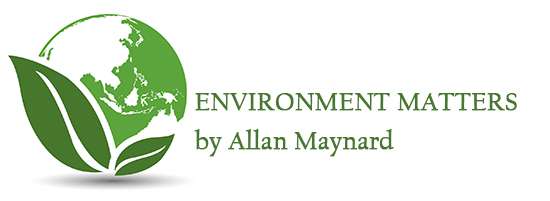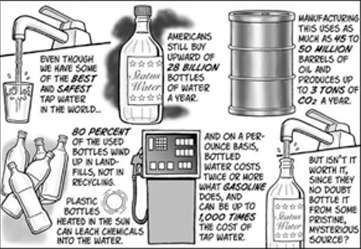
How to Minimize Exposure to Toxins
Part 4 of 4 – series on exposure to man-made chemicals
After reading my series of articles on man-made chemicals, some may now have the impression that we are living in a toxic soup with risks around every corner. This is not the case for most of us that don’t face —
- occupational exposure (ie – farm workers, chemical factory workers, firefighters, etc.),
- proximity exposure – (living in an area near heavy industry and thus dealing with contaminated water and air), or
- living in a city with highly polluted air.
However, our risks are not zero. Many dangerous chemicals can be closer to home than we think. They are present in everyday products such as furniture, clothing, food, water, hygiene products etc. Traces of some of the longer lasting chemicals have been detected in the bloodstream of practically everyone tested.
https://www.environmentmatters.ca/a-daily-dose-of-chemical-exposure/
It becomes increasingly clear that the chemical industry directly, along with the various ways in which chemicals are used in everyday products, are inadequately regulated. There are many cases in which chemicals are introduced without sufficient study. Moreover, their use is often not justified as was recently exposed in the case of widespread use of fire retardants in furniture and carpets.
https://www.environmentmatters.ca/toxic-exposure-forever-chemicals-part-1/
THE PRECAUTIONARY PRINCIPLE
Here is a common lament. “An ounce of prevention is worth a pound of cure”. This is the idea behind the precautionary principle, which helps industry and regulators weigh whether an action or decision should be taken when there is insufficient knowledge about potential harmful effects on the environment, or on the health of people. The precautionary principle implies that, when there is uncertainty about the potential damaging effects of substances, especially those that are persistent and toxic in the environment, it is best to err on the side of precaution. The correct approach is to prevent exposure, rather than try to clean up or cure the negative health effects of an environmental exposure after it has occurred.
http://mleead.umich.edu/files/Precautionary-Principle.pdf
https://ec.europa.eu/environment/chemicals/reach/pdf/publications/final_report_pp.pdf
Evidence abounds that the precautionary principle has not been adhered to for a majority of man-made chemicals on the market today. Here is but one example – with regulations in the USA.
PRUDENT PRECAUTIONS
Given the concern about the various ways in which we can be exposed on a day-to-day basis, and the lack of knowledge about the potential long-term effects of these exposures, here are some suggestions for taking some prudent precautions. In some ways – this list may seem unduly cautious – but they are relatively easy to apply and will be effective. Bearing in mind that many of these chemicals accumulate with some affecting our genes, it is especially important to apply these precautions for young children.
For brevity, the rational for these precautions is not stated in this summary, as that information is presented in a previous article – in the link below.
https://www.environmentmatters.ca/a-daily-dose-of-chemical-exposure/
Here are some suggestions:
- When exposed to air pollutants – as so many were last summer due to wildfires, wear an N-95 mask (or equivalent) and keep air filters in home heating/AC systems clean.
https://smartairfilters.com/en/blog/best-masks-for-viruses-air-pollution/
- Cooking with gas – turn the fan on high. If considering a new stove and or oven – don’t buy a gas appliance.
- If buying new furniture – insist on it being free of PFAS (forever chemicals used as fire retardants).
- Tap water – run the tap (and collect the water for other uses) for about 30 seconds to clear possible metals that dissolve as the water stands in the plumbing.
- Tap water – buy an activated carbon filter if there is a possibility of trace organo-chlorine chemicals (disinfection by-products)
- Minimize using canned food. If glass is an option in buying certain products – take it.
- Avoid buying beverages in plastic bottles – especially alcohol. Avoid bottled water. Do not allow bottled water (or other beverages) to heat up by leaving them in a warm vehicle.
- Be extremely cautious buying cosmetics – especially lip gloss which can contain PFAS. This industry is a “wild west” in terms of being very poorly regulated. https://finance.yahoo.com/news/beauty-industry-in-the-us-is-the-wild-wild-west-beautycounter-ceo-133509049.html
- Fruit and vegetables – wash well before use. If possible, avoid buying products from countries not properly regulated in terms of pesticide use.
- Fish – eat larger fish like tuna infrequently (few times per month) to minimize exposure to mercury.
- Meat – whenever possible buy meat that is antibiotic free. Eat only small quantities of grilled meat and ensure little or no burning of the meats.
- Fast food – it is best to avoid altogether given most of the food wrappings contain PFAS (forever chemicals)
- Household and garden chemicals – use very carefully in well ventilated areas and follow the instructions exactly.

How to minimize exposure to toxins

